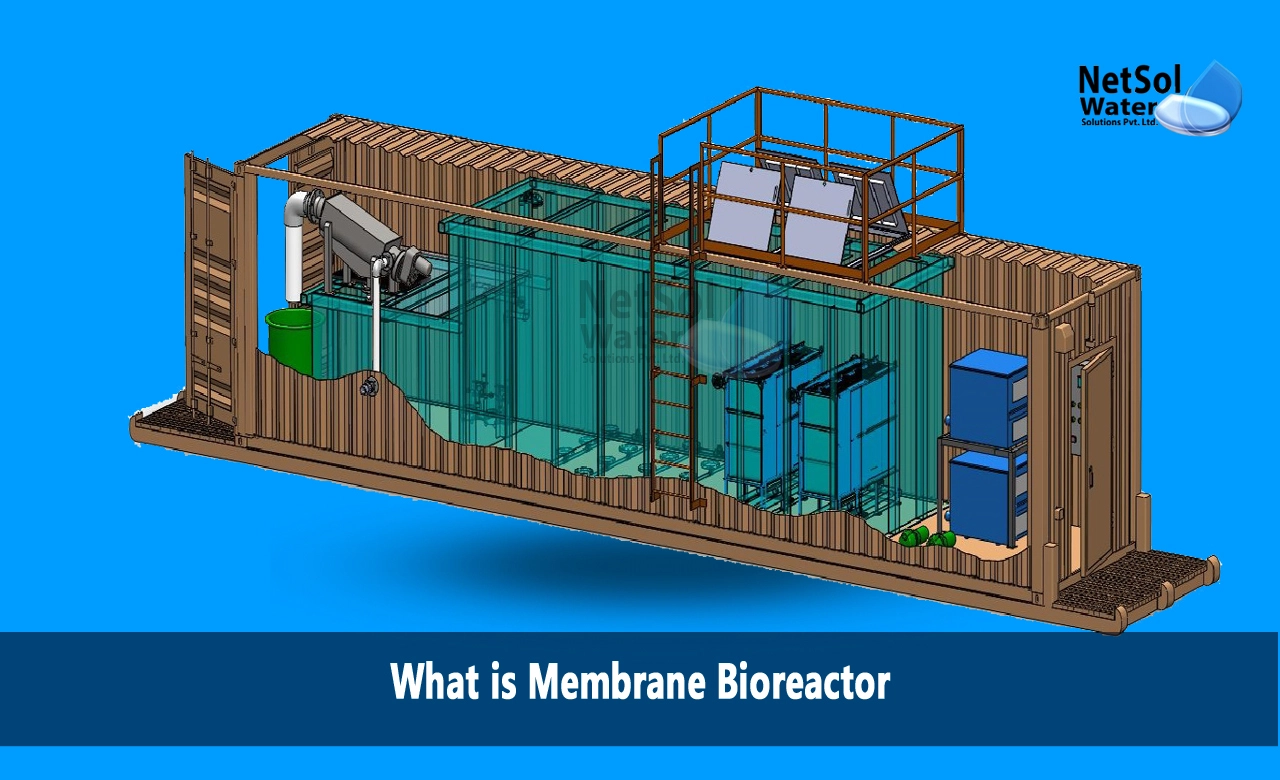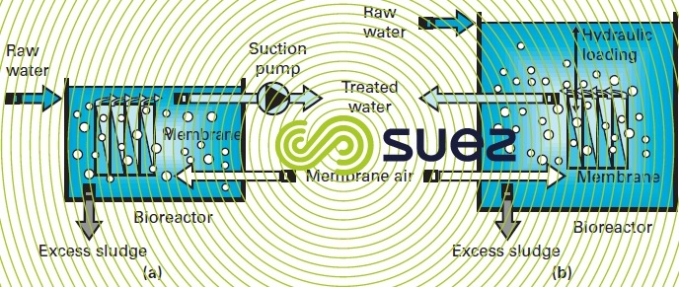How Membrane Bioreactors Are Changing Water Filtration Equipments
The emergence of membrane bioreactors (MBRs) stands for a substantial improvement in the area of water filtration, merging biological therapy processes with advanced membrane layer filtration technologies. As international water deficiency escalates, the duty of MBRs in facilitating drinkable water reuse and sustainable water management ends up being significantly essential.
Summary of Membrane Bioreactors
Membrane bioreactors (MBRs) represent a considerable improvement in water purification modern technology, as they incorporate organic treatment processes with membrane layer filtration. This assimilation boosts the efficiency of wastewater treatment by using microbes to break down organic contaminants while all at once using semi-permeable membrane layers to different treated water from suspended solids and virus.
The MBR system normally is composed of an organic activator where the microbial populace metabolizes contaminants, adhered to by a membrane filtration unit that keeps biomass and enables just tidy water to go through. This dual capability results in greater effluent top quality contrasted to conventional treatment approaches. MBRs can be run in both batch and constant circulation modes, supplying adaptability in layout and application.
They also make it possible for the recuperation of water for reuse, thus contributing to water sustainability initiatives. Overall, MBRs are at the center of boosting water treatment effectiveness and high quality, showcasing the possibility for innovative remedies in environmental administration.
Benefits of MBR Innovation
The assimilation of biological therapy with membrane filtering supplies many advantages for water purification procedures. Among the main advantages of Membrane Bioreactor (MBR) innovation is its capacity to effectively eliminate both organic and not natural contaminants, leading to high-grade effluent. The membrane layers serve as a physical barrier, avoiding suspended solids and virus from travelling through, which enhances the total security and integrity of cured water.
Furthermore, MBR systems need a smaller sized impact compared to traditional therapy techniques, allowing for extra efficient room utilization. This small style is particularly advantageous in metropolitan setups where land is restricted. MBRs also show operational flexibility, accommodating differing influent top qualities and circulation prices without significant performance degradation.
In addition, the procedure provides improved nutrient elimination abilities, specifically for nitrogen and phosphorus, which are essential for preventing eutrophication in receiving waters. The reduced sludge production related to MBR innovation additionally translates to decrease disposal expenses, making it an affordable solution over time - Membrane Bioreactor. On the whole, the advantages of MBR modern technology placement it as a leading selection for cutting-edge and sustainable water filtration systems, attending to both environmental and economic issues
Applications in Water Filtration
Applications of Membrane Layer Bioreactor (MBR) innovation in water purification are varied and impactful, attending to numerous therapy requires across several markets. MBRs efficiently incorporate organic treatment procedures with membrane layer filtering, making them ideal for local wastewater treatment, commercial effluent management, and even safe and clean water reuse initiatives.
In metropolitan setups, MBRs are progressively employed to enhance the top quality of dealt with wastewater, permitting compliance with stringent discharge policies and assisting in the recycling of water for irrigation and non-potable uses. Their portable design additionally makes them ideal for city settings where room is restricted.
Industrially, MBR innovation is made use of to treat process water and wastewater, specifically in fields such as food and beverage, drugs, and textiles. By successfully removing pollutants and suspended solids, MBRs aid sectors decrease environmental effects while recovering beneficial resources from wastewater streams.
Additionally, MBRs are getting grip in decentralized water therapy applications, where small-scale systems can be released in remote locations or developing areas. This versatility makes it possible for areas to attain sustainable water monitoring services, enhancing accessibility to tidy water while decreasing dependence on typical treatment approaches.
Study and Success Stories

In one more instance, a fabric manufacturing facility in Bangladesh took on MBR modern technology find out here now to resolve its wastewater challenges. The system decreased chemical oxygen demand (COD) levels from 1,200 mg/L to much less than 100 mg/L, therefore fulfilling regulative criteria and substantially minimizing ecological impact.
The University of Cape Town's MBR installment has actually verified effective in treating greywater for non-potable reuse on school. This project not just conserves drinkable water however additionally acts as an instructional design for lasting techniques.
Additionally, a seafood handling plant in Norway made use of MBR innovation to treat effluents having high degrees of organic issue, accomplishing over 90% toxin elimination. These case studies emphasize MBR technology's versatility and its essential function in boosting water quality throughout varied applications.
Future of Water Treatment Solutions
As global water scarcity and contamination challenges magnify, ingenious water therapy services are becoming progressively important to guarantee sustainable accessibility to clean water. The future of water treatment exists in the assimilation of innovative look at this site modern technologies that boost the efficiency and performance of purification procedures. Membrane bioreactors (MBRs) go to the forefront of this development, integrating organic therapy with membrane layer filtration to create top notch effluent suitable for various applications.

Arising fads such as source recuperation from wastewater, consisting of nutrients and energy, will certainly additionally change therapy centers right into green centers. Improvements in nanotechnology and membrane layer products assure boosted efficiency and long life of filtering systems.

Conclusion
Their role in drinkable water reuse and lasting water administration highlights their relevance in why not try here dealing with global water deficiency challenges. Proceeded research and growth will certainly additionally improve the efficiency and fostering of MBR innovation, making certain a resilient future for water therapy remedies.
The emergence of membrane layer bioreactors (MBRs) stands for a significant improvement in the area of water purification, merging organic treatment procedures with advanced membrane layer filtration innovations. As global water deficiency escalates, the role of MBRs in assisting in drinkable water reuse and sustainable water administration becomes progressively vital. They also make it possible for the recuperation of water for reuse, hence adding to water sustainability efforts.As international water shortage and pollution difficulties magnify, ingenious water treatment services are coming to be progressively important to make certain sustainable accessibility to tidy water. Their role in safe and clean water reuse and lasting water monitoring highlights their relevance in resolving global water scarcity obstacles.